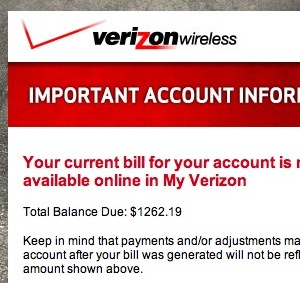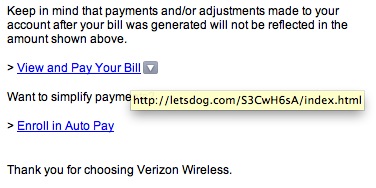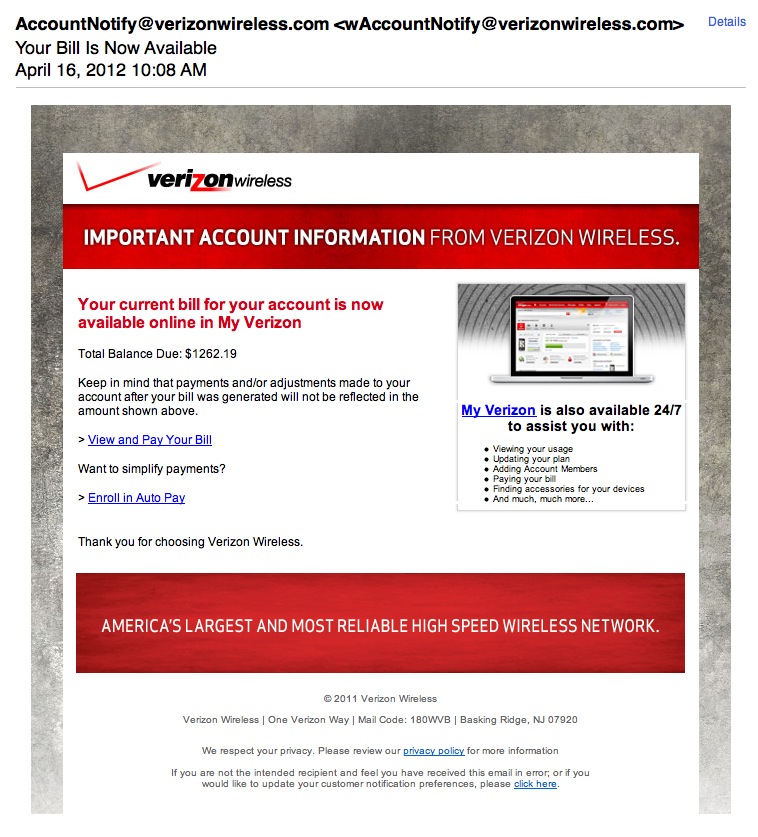 Summary. There is a fake email circulating supposedly from Verizon about a bill being due.
Summary. There is a fake email circulating supposedly from Verizon about a bill being due.
The links in the email, however, don’t go to Verizon’s website.
They go (presumably) to a malicious site that will attempt to get your personal information or infect your computer with viruses.
As long as you don’t click the links and just delete the email, you are probably fine. Contact us if you have any questions.
Best Practice. When emails are received from any business or financial institution, always check the links before clicking on them. It’s generally better to go directly to the known website rather than using links in emails. Some businesses will use domain names that are legitimate, but not their own. Because it’s impossible to know the difference between legitimate and non-legitimate third-party sites, it’s best to avoid unfamiliar websites until you’ve verified them, and only work with the known good site.
Evaluating Email and Link Legitimacy. Some email systems allow you to hover your mouse over links to determine if they are legitimate. Here is an example:

Notice above that the malicious link is revealed and it isn’t a Verizon website address.
Image of Verizon Fake Email. Below is a screen image of the entire fake Verizon email. Click here or the image below for a full-size view.
